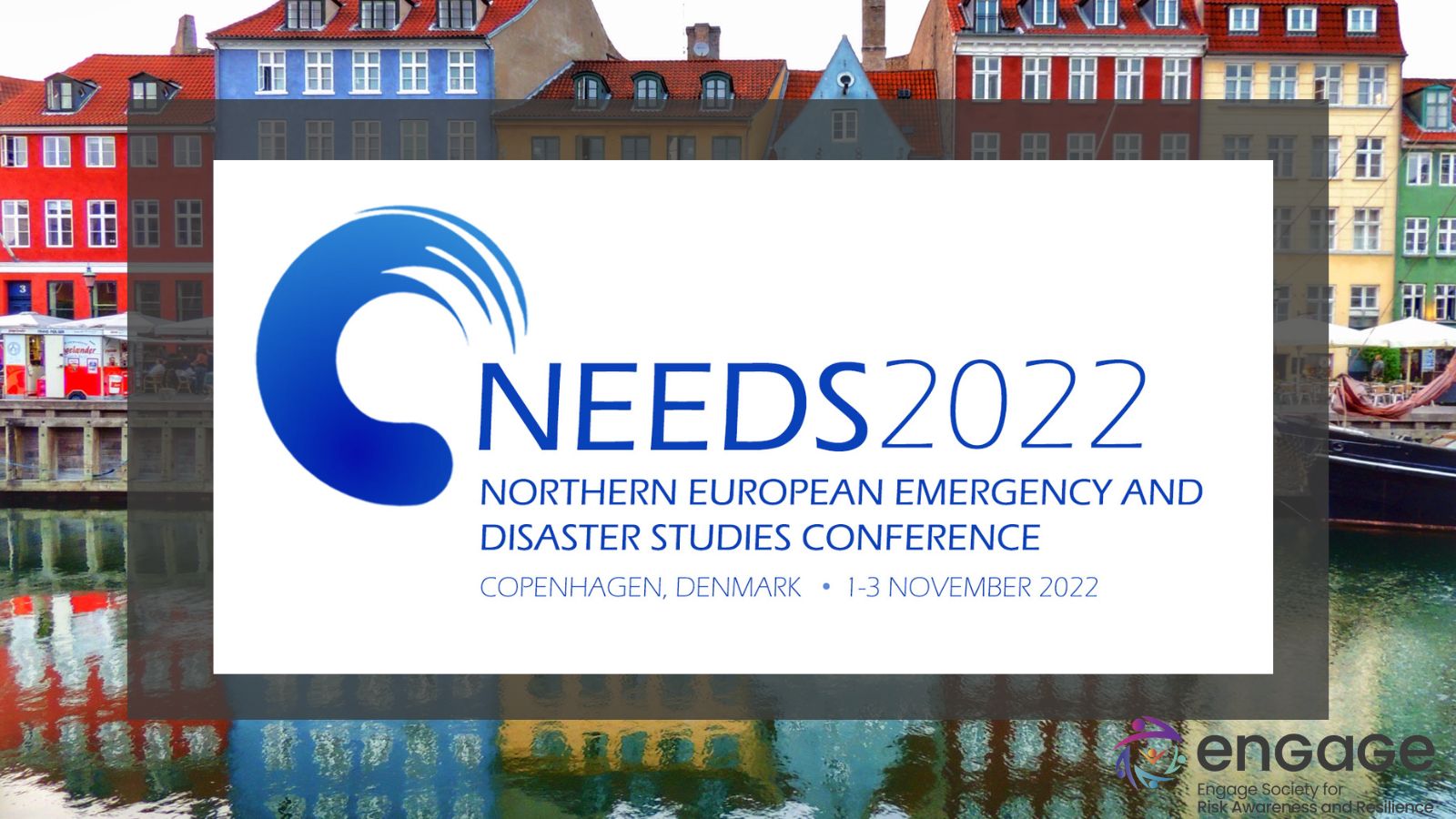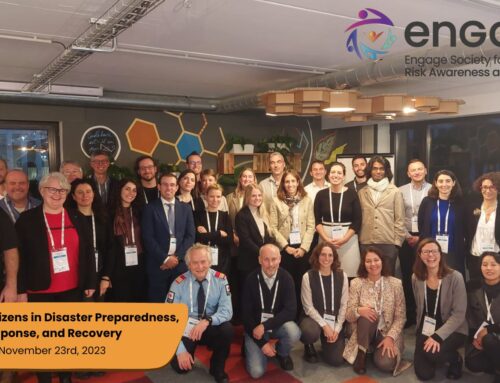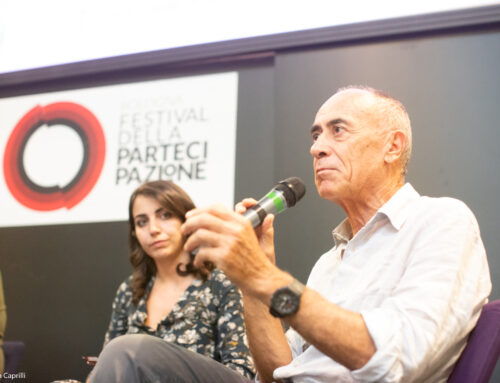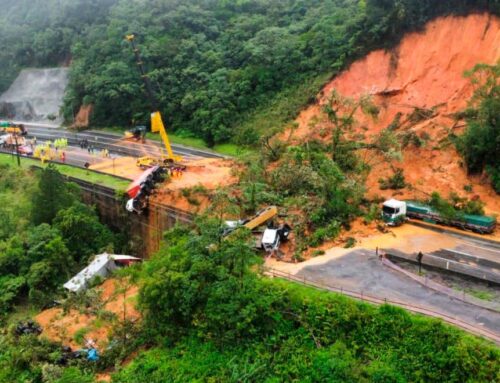November 1st-3rd, researchers from around the world gathered in Denmark at the University of Copenhagen for the Northern European Emergency and Disaster Studies (NEEDS) Conference. Among these researchers were several representatives of the EU-funded Disaster Resilient Societies (DRS01) cluster projects- including RESILOC, LINKS, and ENGAGE- who came to share results and network with individuals whose research is at the forefront of disaster management and disaster risk reduction. In the face of increasingly complex hazards due to climate change and in the wake of the Covid-19 pandemic, it came as no surprise that this year’s focus was global disasters, which prompted questions such as “How can we become more resilient to extreme-weather events?” to kick off the conference.
One potential answer to this question that is particularly relevant to the ENGAGE project was touched upon in a session about involving people in emergency response, which provided perspectives from various corners of the world. A presentation on the management of the COVID-19 pandemic in Providence, Rhode Island, USA, noted the integral roles that volunteers played- especially when it came to facilitating multilingual public health information and distributing vaccines. Although various challenges, including the need for rapid background screenings for large numbers of volunteers and retaining volunteers in a long-duration crisis environment were emphasized, the benefits of their inclusion in the pandemic response were clear- the community was actively engaged, communication with marginalized groups was improved, and the number of response personnel was increased.
A presentation by the Danish Red Cross also provided lessons learned in regard to including formal and informal (individuals unaffiliated with an organization) volunteers in the event of a crisis- namely, ensuring that technical infrastructure can allow for quick on-boarding and online registration. This aspect is critical, as it was noted that formal volunteers would be the connection between authorities and spontaneous (informal) volunteers, as the latter would be funneled towards “team leaders” who would be trained on how to involve untrained and unorganized citizens in the response phase of an emergency.
Gaining a better understanding of what factors motivate citizens to volunteer their time in the event of a crisis was a particular lesson-learned based on some of the presentations at the NEEDS conference, as it can assist formal disaster management in recognizing where and in what contexts volunteers- spontaneous or otherwise- can be integrated. For example, in the case of Rhode Island, the need for volunteer-appropriate tasks for efficient pandemic response was noted- a point which was echoed by the Danish Red Cross, as they noted that an individual’s knowledge on a particular emergency response task should be linked with their desire to help. However, an individual’s wish to contribute to a crisis response can also be linked to their community attachment, which was noted in a presentation by Kersten Eriksson on her research in Sweden, where informal response was integral in order to combat the frequent wildfires that occurred in the area. One respondent in particular emphasized: “You see how collaboration succeeds when everybody joins in…we kept that collaboration going afterwards, although you help in other ways instead.”
If you would like to read more about the ENGAGE project’s case study analysis regarding the role of spontaneous volunteers, you can check out this blog post.
Building on this theme, ENGAGE presented a few recommendations from its’ policy brief, which outlined steps that can be taken by public authorities in order to move towards a more inclusive ecosystem for crisis communications. The ultimate aim of the policy brief is to take a “community positive” approach to communications, encouraging greater engagement with citizens and communities in order to better understand their needs in order to enhance the resilience of societies overall.
Written by: Alexandra Olson (EENA)





